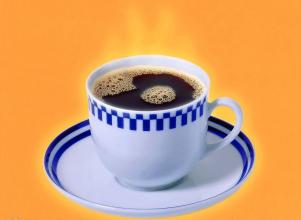Introduction of Jamaican Coffee Flavor and Taste characteristics of Jamaican Coffee
The coffee industry in Jamaica faces a series of problems, such as the impact of hurricanes, the increase in labor costs and the difficulty of mechanizing terraces. It is difficult to rationalize planting on many small estates and farms. However, Blue Mountain Coffee is one of those coffee retailers that value credibility to stock some coffee no matter what. A leading British retailer said: regardless of the price, he will continue to sell Blue Mountain coffee all year round because he has many customers who only recognize "Blue Mountain". Now, 90% of the post-harvest Blue Mountain coffee is bought by the Japanese. In 1992, Jamaica sold 688 tons of Blue Mountain coffee to Japan, 75 tons to the United States and 59 tons to Britain. Now that the rest of the world can only get 10% of the output of Blue Mountain coffee, regardless of the price, blue mountain coffee is always in short supply. In the UK, LangfordBrothers Brothers has been the only supplier for many years. Later, the Edmunds Group (Edmonds Group) also acquired Jamaica's Salda Food Company (Salda).
Foods) to provide the source of goods.
The difference in transportation between Blue Mountain Coffee and other coffee is that it is transported in barrels with a capacity of 70 kilograms, a replica of Bonifieur barrels produced in Guadeloupe in the last century. The barrel was originally used to carry flour shipped from the United Kingdom to Jamaica, usually with a trademark and the name of the manufacturer. The Coffee Industry Council issues certificates for all authentic Jamaican coffee and bears a stamp of approval before export. Although the price can guarantee the supply of Blue Mountain coffee, it does not guarantee the best flavor of the coffee. It is also worth noting that the coffee is more expensive to drink than it looks. In order to taste its best flavor, you must put in more coffee beans than when drinking other coffee, otherwise the flavor will not live up to its name, so the real cost of reflecting the flavor is that it has to add 10% to 15% more coffee beans than the coffee whose price is second only to it. It is said that the real Blue Mountain coffee is made from the best local raw coffee beans, which is the pleasure of tasters. Its flavor is rich, balanced, fruity and sour, and can meet people's various needs. In addition, the flavor of high-quality fresh Blue Mountain coffee is particularly long-lasting, as drinkers say-endless aftertaste. It is necessary to take a closer look at the myth of Blue Mountain Coffee, because the image of the past is often inconsistent with the reality of today. In 1725, Sir SirNicholasLawes brought the first Blue Mountain Coffee species from Martinique to Jamaica and planted them in the St.Andrew area. Today, St. Andrew is still one of the three major producing areas of Blue Mountain Coffee, while the other two are Portland and St..Thomas. In eight years, Jamaica exported more than 375 tons of pure coffee. In 1932, coffee production reached its peak and more than 15000 tons of coffee was harvested. But by 1948, the quality of coffee had declined and Canadian buyers refused to renew their contracts, so the Jamaican government set up a coffee industry committee to save the fate of top coffee.

Important Notice :
前街咖啡 FrontStreet Coffee has moved to new addredd:
FrontStreet Coffee Address: 315,Donghua East Road,GuangZhou
Tel:020 38364473
- Prev

Puerto Rican Coffee Flavor Taste Manor area introduces Puerto Rico boutique coffee beans San Pedro Manor
The Spanish-American War of 1889 ended with the victory of the United States, ending more than 400 years of Spanish rule over Puerto Rico. The demand for sugar in the United States has increased significantly, while the hurricane destroyed most coffee plantations, and the coffee industry in Puerto Rico was hit hard by natural and man-made disasters. In the 20th century, the national economy of Puerto Rico developed rapidly, with the strong support of the government and the local government.
- Next

Jamaican Coffee Manor Silver Mountain Manor introduces the flavor and taste characteristics of Jamaican coffee
The best Jamaican Blue Mountain Coffee is undoubtedly the most famous coffee in the world. It tastes more expensive than it looks. The real Blue Mountain Coffee is made from the best coffee beans in Jamaica, which is the fun of tasters. It has all the substances of coffee, full-bodied, balanced, fruity and perfectly sour. It is blended with three flavors (sweet, sour and bitter).
Related
- Does Rose Summer choose Blue, Green or Red? Detailed explanation of Rose Summer Coffee plots and Classification in Panamanian Jade Manor
- What is the difference between the origin, producing area, processing plant, cooperative and manor of coffee beans?
- How fine does the espresso powder fit? how to grind the espresso?
- Sca coffee roasting degree color card coffee roasting degree 8 roasting color values what do you mean?
- The practice of lattes: how to make lattes at home
- Introduction to Indonesian Fine Coffee beans-- Java Coffee producing area of Indonesian Arabica Coffee
- How much will the flavor of light and medium roasted rose summer be expressed? What baking level is rose summer suitable for?
- Introduction to the characteristics of washing, sun-drying or wet-planing coffee commonly used in Mantenin, Indonesia
- Price characteristics of Arabica Coffee Bean Starbucks introduction to Manning Coffee Bean Taste producing area Variety Manor
- What is the authentic Yega flavor? What are the flavor characteristics of the really excellent Yejasuffi coffee beans?

